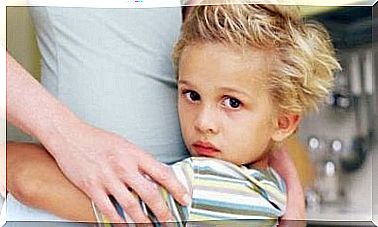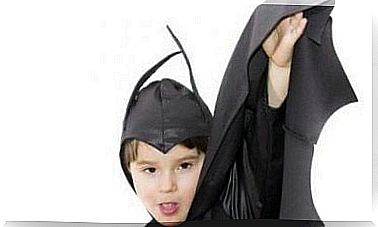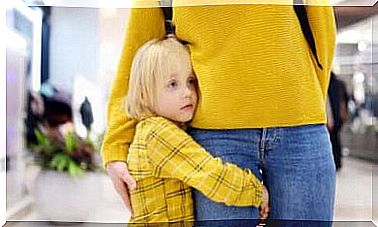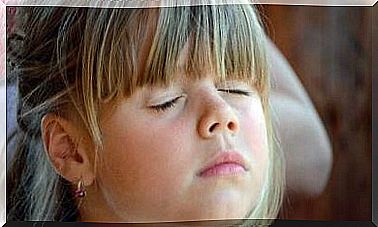The Stages Of Cognitive Development According To Piaget
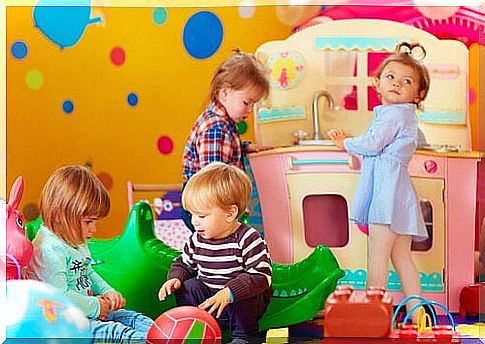
What are the stages of cognitive development according to Piaget? In the next article we will describe the stages defined by Piaget in relation to the human learning process.
The term “cognitive” refers to anything related to knowledge. At the same time, knowledge refers to the amount of information a person has as a result of learning or gained experience.
Psychologists study cognition by analyzing the mental procedures related to knowledge. This discipline is known as cognitive psychology. Cognitive psychology refers to the study of the mechanisms involved in the formation of knowledge.
Piaget’s concept of the stages of cognitive development in a child
Cognitive development is an important area of psychology. As a result, psychologists have developed several theories that focus on the study of thought processes. Piaget’s theory of cognitive development is one of the most important.
Piaget believed that it is important for children to discover for themselves in order to learn. This exploration influences their cognitive development.
This Swiss psychologist also believed that children of all ages are capable of solving different situations and problems. Piaget evaluated common mistakes made by children of different ages.
His observations led him to conclude that children within the same age group make the same mistakes. In turn, Piaget also concluded that cognitive development occurs in an evolving sequence.
Piaget referred to this sequence as the stages of cognitive development. He claimed that the stages in this process follow a strict sequence. These apply to all children from any country. However, the exact age at which a child passes each stage can vary slightly from child to child.
Stage one: the sensorimotor stage
The first stage of cognitive development is the sensorimotor stage. This stage lasts from birth to age 2 years. Here children learn to experiment. They also discover the objects around them.
They do this using their 5 senses and their motor skills. With this experiment, they can learn a concept known as the durability of objects.
Children don’t understand at first that objects continue to exist even if they can’t see them. That’s why it’s so much fun to play peek-a-boo with them. Cover your face and then magically emerge. Over time, children will come to know this concept.
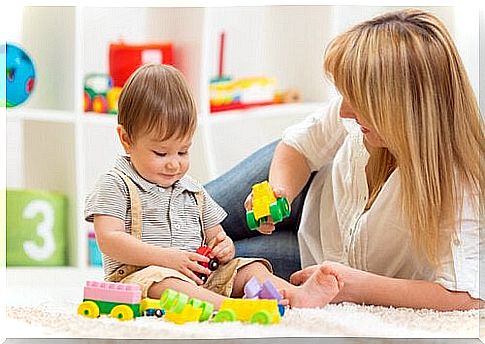
Piaget’s conclusions regarding the sensorimotor phase
The child begins to learn more about the world around him. This knowledge will then serve as the basis for the second phase.
Phase Two: The Pre-Operational Phase
The preoperational stage begins to appear in children around the age of 2 years. It lasts until the age of 7 years. This stage is characterized by egocentrism. That is typical for children in this age group.
Their egocentric perspective makes them unable to adopt the perspective of others. In other words, they have trouble seeing something from another side. Nor can they put themselves in someone else’s shoes yet.
Children closer to the age of 6 or 7 may show empathy. But the egocentric thought is predominant in most of this phase. The child understands the world from his own specific perspective.
However, children at this stage of development manifest themselves and can make use of symbolic thinking. In other words, they can talk.
Piaget’s Conclusions Regarding the Preoperational Stage
The transition from the sensorimotor stage to the preoperational stage occurs through imitation. Imitation produces an image in the child’s brain, a process involving language.
Phase three: the concrete operational phase
Piaget’s third stage of cognitive development begins at age 7. It lasts until the age of 12 years. During the concrete operational phase, children begin to apply principle and logic. They can solve problems in a more rational and logical way. But only with regard to concrete objects or events.
Children in this age group are not yet able to process abstract concepts. In fact, their thinking is focused on the actions they perform.
According to Piaget, children in this phase are also capable of inductive reasoning.
Piaget’s conclusions regarding the concrete operational phase
This stage is characterized by a gradual decline in egocentrism. This decline is due to the child’s growing understanding of grouping. However, these children have yet to develop abstract thinking and reasoning.

Phase four: the formal operational phase
This fourth stage of Piaget’s theory of cognitive development is the formal operational stage. It starts at about age 12. At this point, the child is at the beginning of adolescence, which will lead him to adulthood.
The adolescent child can now process abstract thinking. Therefore, he can now formulate a hypothesis.
The fact that the child is able to hypothesize means that he no longer thinks only in terms of reality. He also thinks about how to do things. Children in this stage of development have a better understanding of the environment around them. The same goes for cause and effect.
Piaget’s conclusions regarding the concrete operational phase
At the onset of this stage, the person’s ability to reason is primarily focused on counteracting facts. This is the period of time when the child begins to develop his own theory about how he views the world.
While most children reach this stage, not all do. Unfortunately, those who don’t are often labeled as less intelligent.
Conclusion
These are the 4 stages of cognitive development according to Piaget. This famous psychologist believed that the whole process of developing intelligence could be related to a stimulation process that involves two essential aspects. These aspects are assimilation and accommodation.
And finally, it’s important for parents to be aware of the stages of Piaget’s cognitive development. That way , they can rest assured that their children are developing healthy from birth to adulthood.
This awareness also allows parents to better understand their children’s abilities based on their age. It also helps parents provide adequate activities and avoid forming unrealistic expectations of their children.
